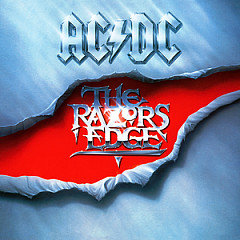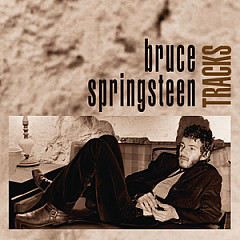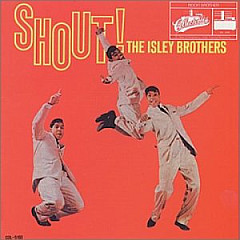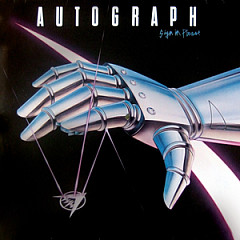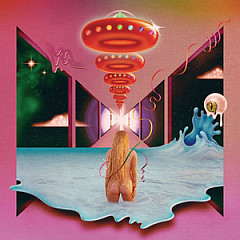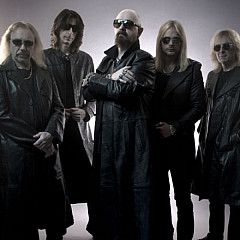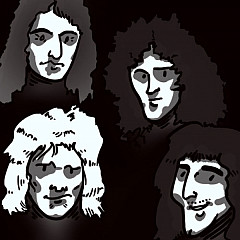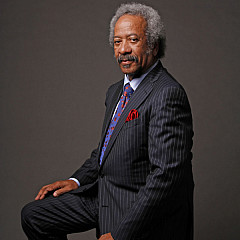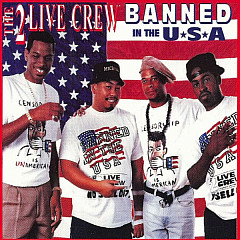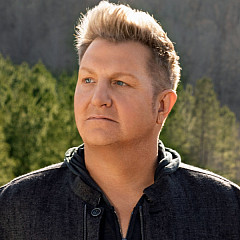Featured in the musical West Side Story, "America" has music by Leonard Bernstein and lyrics by Stephen Sondheim. When Stephen Sondheim talks about West Side Story decades after its Broadway debut in 1957, it is clear that for him, most of the songs did not hold up well over time. While many fans of the classic musical would disagree, Sondheim describes the score as "embarrassing" and said in 2010 that he could have improved on it if he had more time. As for "America," which is part of the Columbia Broadway cast recording and the 1961 film soundtrack, Sondheim said that the music is so fast that he typically would not even try to put lyrics to a song like that.
Sondheim's lyrics to "America" actually were revamped for the film. Many people agree that the movie was toned down from the stage production and lacks some of the tension and drama that the Broadway show offered. The reworked "America" is part of that revision. Fans of the song may not be familiar with the original exchange between the Puerto Rican girls, Rosalia and Anita. In the stage production, Rosalia sings, "Puerto Rico, you lovely island. Island of tropical breezes." Anita responds, "Puerto Rico, you ugly island. Island of tropical diseases."
Stephen Sondheim questioned at the time whether he was the right person to write the lyrics. He said then that he had never even met a Puerto Rican, yet he was tasked with capturing the racial tension of the city and the era. The result was lyrics such as "Life is all right in America, if you're all white in America," which appear in both the film and stage version. Both versions also include the lines "I'll drive a Buick through San Juan, if there's a road you can drive on" and "I'll give my cousins a free ride, how you fit all of them inside." Regardless of which version you hear, the message still seems to be the same. As Anita sings the praises of America, she is letting the listener know that Puerto Rico will never be America and she is an American now.
What many mainland Americans didn't realize is that Puerto Rico was part of America, and still is. It was an American colony from 1898 until 1952, when it became US commonwealth, a nebulous designation that grants it some level of independence but keeps it under American control. Puerto Ricans can't vote in American elections, but can travel freely throughout the country. In the 1950s, many from the island moved to the mainland, with New York City the most popular destination. Most Puerto Ricans who came to New York were women who took up jobs in the service industry. The city was seen as an exciting land of opportunity, which is expressed in this song. Puerto Rico, which got short shrift from the American government, faced overcrowding and economic hardship, but fared much better when its commonwealth status attracted corporations looking for tax advantages.
Also to consider: Spanish-speaking brown people were both exotic and frightening to many mainland Americans. The US granted statehood to Hawaii and Alaska in 1959, but never seriously considered adding Puerto Rico. The news media in the '50s painted Puerto Ricans in New York as gang members, thieves and drug users, characterizations that found their way into popular culture, including West Side Story, which became the touchstone for mainlanders viewed the island.
In an ironic twist, Leonard Bernstein's music has a distinctive Spanish rhythm. The song is so upbeat and energetic and that were it not for the lyrics, "America" could very well be an anthem to Puerto Rico. Rita Moreno, who sings the song on the movie soundtrack, is a native of Puerto Rico. Chita Rivera, who played Anita on Broadway, is the American daughter of a Puerto Rican father. Their versions – especially Moreno's – remain the definitive recordings of the song and it is rarely covered.
West Side Story was originally about a romance between a Jewish woman and a Catholic man, but exchanging Jews for Puerto Ricans seemed more relevant and offered a more enticing storyline.
The British rock band The Nice made the song almost unrecognizable with their version in 1968. However, the cast of the television show Glee gave it a try in 2011. The show made a notable change by weaving the white gang, the Jets, into the song. The Jets, not the Puerto Rican Sharks, sing about freedom in America for Puerto Ricans. "Free to wait tables and shine shoes," they sing. West Side Story might be remembered more for its songs about the forbidden romance between Tony and Maria, but it is "America" that strikes at the heart of why that romance was ever forbidden.
-
The Muppets did a big production number to this song in a 1979 episode of The Muppet Show.
For his 2021 remake of West Side Story, Steven Spielberg knew he couldn't compete with the iconic rooftop dance sequence that introduced "America" in the 1961 film, so he didn't even try.
"The choreography and the camerawork between Robert Wise and Jerome Robbins is unrepeatable. I could never direct that sequence as well. I could not even hold a candle to how great that scene is," he told Entertainment Weekly.
Instead, he and screenwriter Tony Kushner relocated the scene to the streets below. "Why don't we take it out into the streets in broad daylight?" Spielberg said of their vision. "Let's cover four city blocks and let's make this a celebration of San Juan Hill and the whole Puerto Rican community."
Ariana DeBose, who plays Anita, said the re-imagined number captured the spirit of the Latin community. "Typically, we're talking about how Latinos are drug lords or drug mules. And we have all these problems, and we're not educated," she said. "So to see Latin joy and to see people who are dressed beautifully and who are having a wonderful time in community activities. You got to know these people and their light, not just their dark. It's a really beautiful duality. You get to know this community. I'm really proud of that."
Spielberg's alternative was a hot take on the original concept... literally. "We shot it during a heatwave," DeBose recalled. "And we shot it over the course of a month, these little bits and pieces in the streets of New York. It felt like a love letter to the city. But I burned holes in my shoes."
David Alvarez, who plays Bernardo, added, "They had to CGI my sweat out."

